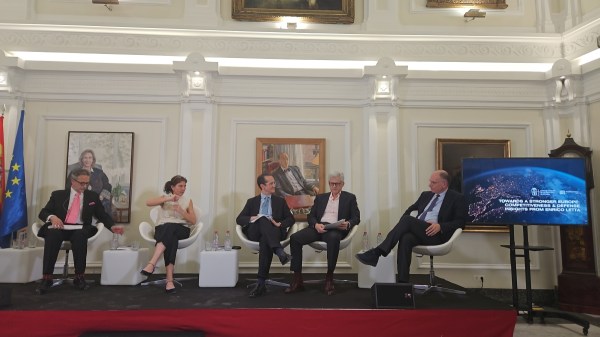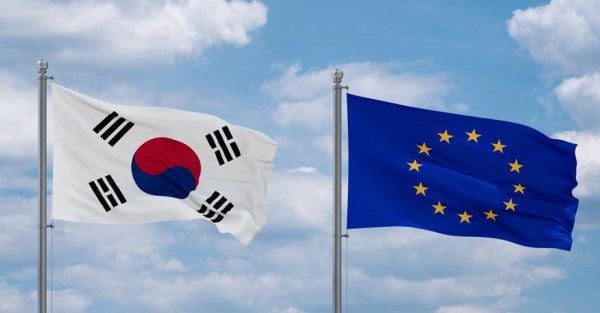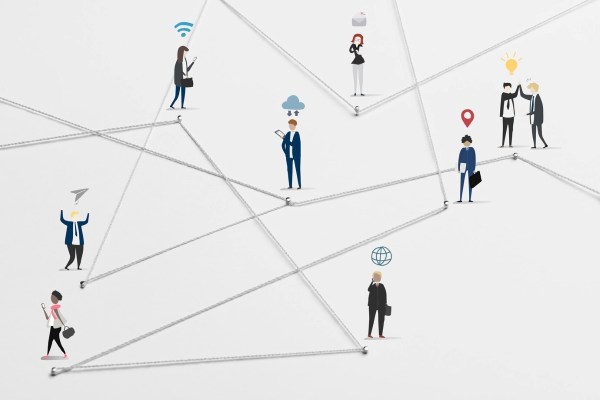Telefónica Public Policy & Telefónica España Regulatory teams
![]() One of the necessary conditions for promoting the concept of social innovation involves creating the proper environment that allows all players to meet who, in turn, can help to identify, develop and market new solutions that suit the needs of certain groups who are at risk of exclusion. For this reason, Telefónica and other EU and Latin American ICT innovators from the private sector and civil society are committed to developing the Mobile Inclusion Platform for Europe and Latin America (M-Inclusion) starting 1st November 2011. This platform involves a Support Action funded by the European Commission whose overall objective is to create a co-operation framework between EU and LATAM mobile solution developers and different entities (e.g., public bodies, Third Sector associations) voicing the digital inclusion needs of people at risk of exclusion in LATAM in order to improve their personal autonomy, and thereby, their social integration.
One of the necessary conditions for promoting the concept of social innovation involves creating the proper environment that allows all players to meet who, in turn, can help to identify, develop and market new solutions that suit the needs of certain groups who are at risk of exclusion. For this reason, Telefónica and other EU and Latin American ICT innovators from the private sector and civil society are committed to developing the Mobile Inclusion Platform for Europe and Latin America (M-Inclusion) starting 1st November 2011. This platform involves a Support Action funded by the European Commission whose overall objective is to create a co-operation framework between EU and LATAM mobile solution developers and different entities (e.g., public bodies, Third Sector associations) voicing the digital inclusion needs of people at risk of exclusion in LATAM in order to improve their personal autonomy, and thereby, their social integration.
The M-Inclusion Project is based on a Project Consortium comprised of different types of players (4 EU, 4 LATAM) bringing various capabilities, knowledge, experience and networks to major initiatives and services in the field. The M-Inclusion Project’s innovative approach takes the end-user’s input representatives as an initial reference for work and then identifies hybrid working groups to build the final M-Inclusion Roadmap.
A stakeholder group comprised of at least 30 organizations is involved in resolving the inclusion problems for the target groups identified and designing an innovative IT Web Portal.
All interested players will integrate the M-Inclusion Community, an open forum for dialogue supported by the IT Web Portal, and offer the following:
1) A complete database with references, resources, organizations, success cases, technologies; all about mobile technologies for personal autonomy and social inclusion;
2) A work environment for defining the M-Inclusion Roadmap. A detailed guide containing: the needs of end-users identified, suitable technological solutions, future technological trends and recommended actions in order to fully tackle social inclusion objectives;
3) Providing support through a specific tool (Open Funding Platform), and services related to the identification and promotion of RTD projects that are based on the Open Innovation concept (collaborative RTD);
4) Providing support to market opportunity generation through two M-Inclusion Ideas Competitions (“Challenges”) and an M-Inclusion Marketplace that will help developers display their mobile applications, web services as well as ideas related to inclusion into the market. It will be linked to existing relevant platform supporting developers, such as Telefónica’s Blue Via or Nokia’s Open Forum, amongst other possibilities.
The project promotes both a working environment for defining a Mobile Inclusions solution Road Map and the growth of innovative, user-oriented, and affordable mobile solutions. In order to do this, M-Inclusion will actively incorporate within the process representatives from four groups of potential end-users: people with disabilities, patients suffering from chronic illnesses, low-income sectors and people from isolated areas, in order to fully understand their specific needs and handicaps. What’s more, the project aims to contribute to the debate on the digital divide, by sharing recommendations and conclusions with representatives of the IT industry and public bodies that are in charge of national and regional digital agenda, through dissemination activities.
Telefónica is chairing this project, which will last for two years. Our primary motivation in heading this project is the great opportunity that social innovation offers our sector since it enables ICTs to meet the needs of certain groups that are at risk of exclusion, and without having to give up profitable and sustainable business models over time. One of the assets of the proposal is the linking of these players in Europe and in Latin America. Due to its international presence, Telefónica is well-suited for heading this type of alliance.
We hope that with this platform and, amongst all, we will succeed in not only providing a voice but also meeting the needs of groups at risk of exclusion within Latin America so that their autonomy, and ultimately, their social integration can be enhanced.











